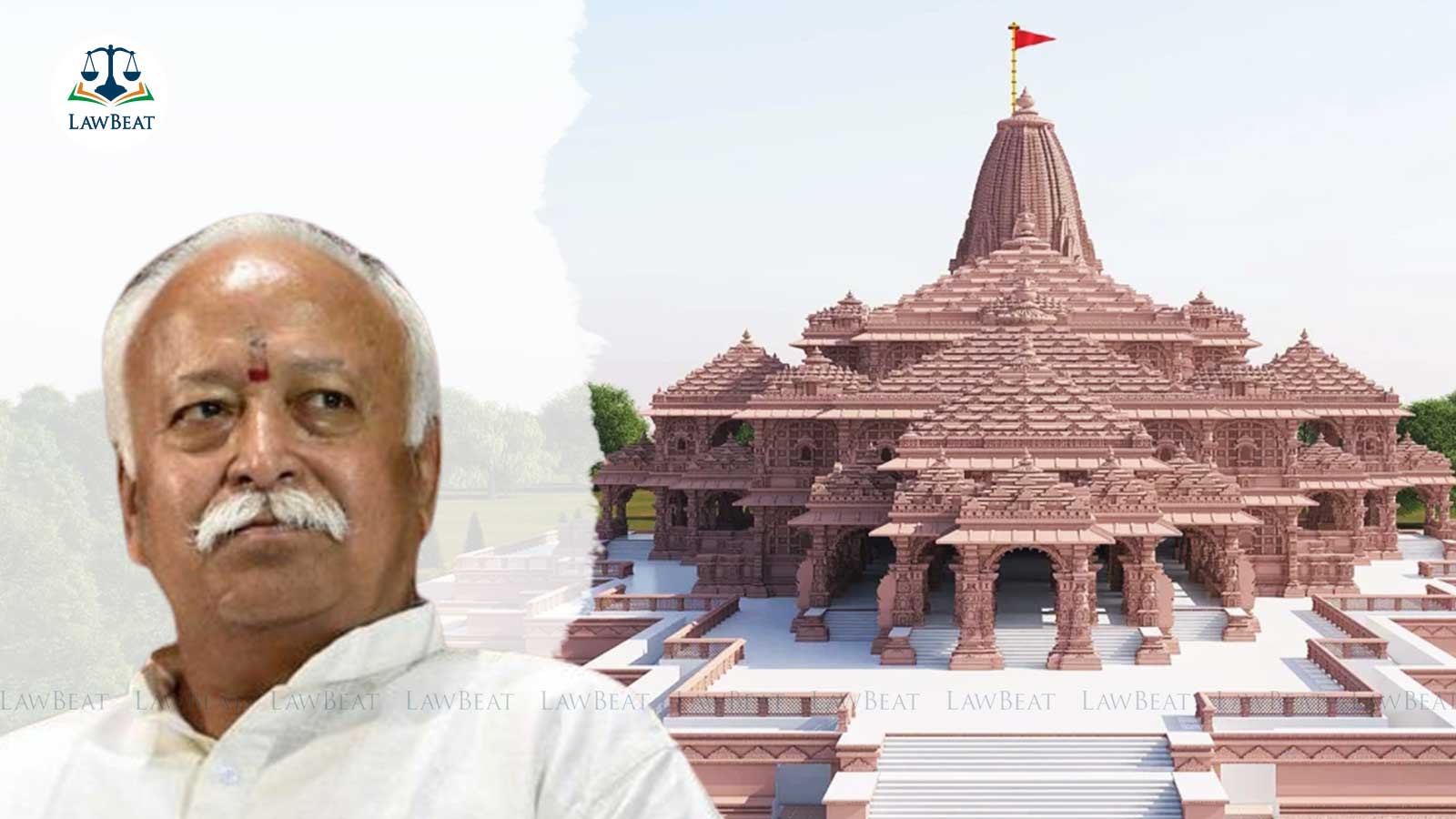“From Judicial Struggle to Sanctity”: Mohan Bhagwat Reflects on Ram Janmabhoomi Judgment

Bhagwat reflected on the arduous journey towards the construction of the Ayodhya Ram Mandir, emphasising the decades-long struggle that culminated in judicial intervention
Speaking at the inauguration of the Dattaji Bhale Smriti Samiti Karyalaya, RSS chief Mohan Bhagwat highlighted the monumental achievement of the Ram mandir construction in Ayodhya, attributing it to three decades of unwavering struggle and sacrifice.
"People donated money for the construction of the Ram temple. It was because of the struggle of 30 years (that the temple was built)… We had wanted a temple at the Ram Janmabhoomi for 500 years. People were ready to donate money, and the entire country was overwhelmed when the temple was inaugurated (on January 22, 2024)," Bhagwat passionately articulated.
Bhagwat reflected on the arduous journey towards the construction of the Ayodhya Ram Mandir, emphasising the decades-long struggle that culminated in judicial intervention.
The turning point came with the Supreme Court's judgment on November 9, 2019, providing the legal framework and momentum essential for the temple's construction. The apex court, in its unanimous verdict, delivered by a bench of five judges, headed by then Chief Justice of India (CJI) Ranjan Gogoi, former CJI S.A. Bobde, present CJI D.Y. Chandrachud, Justices (retired) Ashok Bhushan and S. Abdul Nazeer, decreed that the disputed land, spanning an area of 2.77 acres, be allocated solely for the construction of the temple, while an additional 5-acre plot be allotted to the Uttar Pradesh Sunni Central Waqf Board for the construction of a mosque at a suitable location within Ayodhya.
“Selfless people work hard without thinking about results. They want results even though they would not come in their lifetime,” Bhagwat added.
Notably, the legal proceedings were initiated in 1885 for the construction of the Ram temple in Ayodhya commencing with Raghubar Das, a mahant of the Nirmohi Akhara. The proceedings spanning over 140 years, also saw Abhiram Das and Gurudutt Singh in crucial roles, with Abhiram Das known as 'Uddharak baba' for his efforts in installing Ram Lalla's idol in 1949. KK Nayar, Gopal Singh Visharad, Bhaskar Das, and Umesh Chandra Pandey also significantly contributed to the dispute's legal progression. Nayar, as the Faizabad DM in 1949, opposed the removal of Ram's idol, while Visharad's petition laid the foundation for the title suit. Bhaskar Das maintained the 'chabutra' at the mosque until his passing in 2017, and Pandey's petition led to the unlocking of the site in 1986. These individuals, alongside others, have left an enduring mark on the legal saga of the Ayodhya temple dispute, displaying unwavering determination and perseverance throughout the decades.
The Court, while delivering the verdict in 2019, also ruled that the 2010 Allahabad High Court's decision, division of the disputed land was incorrect. In their final judgment, the three-judge bench of the Allahabad High Court concluded that none of the parties could establish title over the disputed land in Ayodhya. Dissatisfied with this decision, all three parties appealed to the Supreme Court, challenging the verdict.
The apex court also unequivocally condemned the demolition of the Babri Masjid and its desecration in 1949 as violations of the law, emphasising the importance of upholding justice and communal harmony.
Moreover, the court underscored the failure of Muslim parties to establish exclusive possession of the disputed land, while acknowledging the Hindu community's uninterrupted worship at the site, reinforcing their claim to ownership. The verdict also addressed the legal standing of various parties involved, including the dismissal of the suit filed by Nirmohi Akhara while ensuring their representation in the board of trustees.
Bhagwat highlighted that the construction of the Ram temple in Ayodhya epitomises this spirit of perseverance and dedication, heralding a new era of hope and renewal for generations to come.
In the words of Mohan Bhagwat, "Doing hard work without yearning for results is 'tapasya', and it brings lasting prosperity and happiness.”
“Tapasya (penance/struggle) and `samarpan’ (dedication and sacrifices) of many people led to this,” the RSS chief said.
